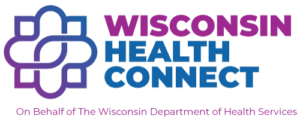Financial and Legal Resources to get through COVID-19
The University of Wisconsin-Extension has gathered a group of excellent resources for financial issues caused by COVID-19, including information about unemployment benefits, public assistance, loan deferments, utility payments, and much more. Click here for the UW-Extension Financial Resources list.
Apply for Unemployment online at dwd.wisconsin.gov/uiben/apply/ and download the Wisconsin Unemployment Insurance Handbook for Claimants. The State of Wisconsin also has a page of Unemployment COVID-19 Public Information.
People who are self-employed, independent contractors, or otherwise not usually eligible for unemployment benefits may now be able to apply for Pandemic Unemployment Assistance (PUA). PUA is a new temporary federal program that provides up to 39 weeks of unemployment benefits to individuals who are not eligible for regular Unemployment Insurance. Get more information or apply online at dwd.wisconsin.gov/uiben/pua/.
As of March 21, 2020, the IRS has extended the filing and payment deadlines for personal and business taxes. “The filing deadline for tax returns has been extended from April 15 to July 15, 2020. The IRS urges taxpayers who are owed a refund to file as quickly as possible. For those who can’t file by the July 15, 2020 deadline, the IRS reminds individual taxpayers that everyone is eligible to request an extension to file their return.” More information on the IRS website: www.irs.gov/newsroom/payment-deadline-extended-to-july-15-2020
The Federal Government has started issuing Economic Impact Payments to taxpayers. Check out their website to see if you are eligible to receive a payment, check on the status of your payment, or provide your bank account information to the IRS to receive your payment through automatic deposit. https://www.irs.gov/coronavirus/economic-impact-payments
WXPR reports that there are an increasing number of legal issues that residents face due to COVID-19, including cases related to unemployment benefits, child custody, tenant rights, workplace safety, and much more. There is free legal help available for those who qualify through the American Bar Association’s FREE LEGAL ANSWERS service.
Last updated April 21, 2020
COVID-19 Medical information and services
The Wisconsin Department of Health Services has created Wisconsin Health Connect to provide online COVID-19 screening and information.
If you have non-medical questions or needs related to COVID-19, contact Wisconsin 211 by sending a text message “COVID19” to 211-211, visit 211wisconsin.org, or call 2-1-1. Due to higher call volumes, visiting 211 Wisconsin online or text messaging is recommended.
Wisconsin State Health Department: 608-258-0099
 Resilient Wisconsin is working to address mental and behavioral health challenges with early interventions that improve people’s social, economic, and environmental conditions. The website includes information for everyone dealing with stress related to COVID-19, with extra resources for those on the front lines of this crisis: medical and emergency services personnel.
Resilient Wisconsin is working to address mental and behavioral health challenges with early interventions that improve people’s social, economic, and environmental conditions. The website includes information for everyone dealing with stress related to COVID-19, with extra resources for those on the front lines of this crisis: medical and emergency services personnel.
It’s OK to ask for help! Click here for links and phone numbers to organizations who can provide free support for mental and behavioral health services.
The Wisconsin Hospital Association Information Center has created a “COVID-19 Situational Awareness” dashboard that provides data on the number of COVID-19 patients in Wisconsin; the number of hospital admissions; availability data on hospital beds, ICU beds, ventilators, and personal protective equipment (PPE) for health care providers; and more.
Please do not call 911 for COVID-19 information. Local officials are urging people to not use 911 or their local sheriff’s non-emergency number for information calls, and to keep those lines open only for emergency calls. Here are some options available for information by phone, as shared by the Oneida County Sheriff’s office 3/27/2020:
- Call 211 for information and connection to services in your area. Wisconsin’s 211 is open 24 hours a day, 7 days a week.
- Ascension Medical Center 833-981-0711, available 24 hours a day/7 day a week.
- Aspirus Health Care 844-568-0701, available 7am-8 pm Monday-Friday and 8am-5pm Saturday-Sunday.
The Iron County Health Department website includes state and local information releases about COVID-19.
The Western Upper Peninsula Health Department will have information for the western Upper Peninsula of Michigan, including Gogebic County.
The Marshfield Clinic-Mercer Center clinic and remote pharmacy is temporarily closed, along with other local centers in the Marshfield Clinic system. (See www.marshfieldclinic.org/patient-resources/covid-19-temporary-location-closings for more information from Marshfield Clinic.) Patients are asked to use the Minocqua Center, 715-358-1000.
The Mercer Library encourages you to use reliable sources of information from health professionals when making decisions for yourself and your family. Here are some recommended resources for COVID-19 information:
- The Centers for Disease Control and Prevention – www.cdc.gov/coronavirus/2019-nCoV/index.html
- Wisconsin Department of Health Services – www.dhs.wisconsin.gov/covid-19/index.htm
- Outbreaks in Wisconsin (listed updated by 2pm daily) – www.dhs.wisconsin.gov/outbreaks/index.htm
- World Health Organization – www.who.int/emergencies/diseases/novel-coronavirus-2019
- Marshfield Clinic COVID-19 information and online screening tool – www.marshfieldclinic.org/specialties/infectious-diseases/coronavirus-update
Last updated: April 20, 2020
Avoiding COVID-19 misinformation and scams
As happens during any major event, misinformation has started spreading about the COVID-19 virus. Scammers are also starting to take advantage of the public’s anxiety over this issue. We encourage you to seek out reliable sources of information when making decisions about your health, finances, and other important issues during this worldwide crisis.
Please help avoid the spread of misinformation: fact-check BEFORE you share! Here are some useful fact-checking resources about COVID-19:
- FactCheck.org COVID-19: www.factcheck.org/issue/covid-19/ and www.factcheck.org/a-guide-to-our-coronavirus-coverage/
- Snopes.com Coronavirus Collection: www.snopes.com/collections/new-coronavirus-collection/
- Politifact Coronavirus fact-checks: www.politifact.com/coronavirus/
- Federal Trade Commission ‘s advice on avoiding Coronavirus Scams: ftc.gov/coronavirus
Avoiding Medicare fraud
The Senior Medicare Patrol is reporting several consumer scams related to the COVID-19 virus. See their website for more information. Here are some tips for avoiding COVID-19 Medicare fraud:
- Never give out your Medicare number, Social Security number, bank account information, credit card number, or any other personal information to unsolicited phone calls, texts, emails, or any other public venues.
- There are no approved treatments OR in-home tests for COVID-19. Be wary of anyone selling products they claim can test for, prevent, or cure COVID-19.
- Review your Medicare statements and explanation of benefits for errors or for charges for services you did not receive.
- Contact your health provider if you have questions about COVID-19. Do not rely on advertisements or unsolicited calls, texts, emails, or social media posts for health information.
Last updated: March 30, 2020
Explaining COVID-19 to your kids
For kids
- NPR has a comic explaining COVID-19 for kids. Download, print, and fold it into a zine you can share.
- The StorySeeds podcast has an episode by Jason Reynolds explaining the “New Bad Guy in Town” that gives kids and grownups eight tips for fighting germs and staying healthy. StorySeeds is geared towards kids aged 6-12.
- YA author Laurie Halse Anderson has a write-up on “Flattening the Curve” on her Facebook page
For parents
- The CDC has information about talking to your children about COVID-19
- The Neuropsychology & Education Services for Children & Adolescents (NECCA) has a well-written article on Making the most of COVID-19 closures
- KiwiCo has a parent toolkit that includes information on explaining social distancing, investigating the science of hand washing, how viruses spread, tips from teachers, and more.
Misc. Changes due to COVID-19
COVID-19 is affecting the way our local governments and organizations are doing their work. Here’s a list of things you might want to know about, but which don’t fit neatly into any other categories:
The Mercer Transfer site is open, but requests a change in procedures: “People must place their own garbage into the correct area and remain the safe distance of 6 feet away from the workers.” See the Town of Mercer’s website at www.townofmercer.com for information on this and other changes to town services.
The Wisconsin Department of Justice’s Office of Open Government has issued additional guidance on holding open meetings remotely. Government bodies that decide to hold remote meetings must still ensure that their meetings are appropriately noticed and open to the public. Click here for more information.
Last updated April 3, 2020
Small Business resources
The U.S. Chamber of Commerce Foundation has created a program to provide grants of up to $5000 to small businesses. Visit their website for more information: savesmallbusiness.com
The Small Business Association has information about Small Business Guidance & Loan Resources. “Small business owners in all U.S. states and territories are currently eligible to apply for a low-interest loan due to Coronavirus (COVID-19).” See www.sba.gov/page/disaster-loan-applications for more information.
Paycheck Protection Program
The Paycheck Protection Program authorizes up to $349 billion toward job retention and certain other expenses. It can provide small businesses with funds for up to 8 weeks of payroll and benefits expenses. Funds can also be used to pay interest on mortgages, rent, and utilities expenses. Small businesses can start applying as of April 3, while self-employed individuals and independent contractors can start applying as of April 10, 2020.
home.treasury.gov/policy-issues/top-priorities/cares-act/assistance-for-small-businesses
Last updated: April 20, 2020
Homemade masks to slow the spread of COVID-19
The Centers for Disease Control and Prevention (CDC) now recommends that all Americans use a cloth face covering when going out into the community. Their website gives instructions on how to make your own cloth mask from materials you already have at home, and includes patterns for masks that are sewn and “no-sew” designs.
It’s important to wear any mask or face covering correctly, since touching the mask incorrectly can actually encourage the spread of the virus. Check out this video from Dr. Sydnee McElroy that shows you how to don and doff your mask the right way.
Similarly, if you’re wearing gloves to protect yourself and others, it’s important to use them correctly AND remove them correctly. Check out this video from the Minnesota Department of Health for the correct way to don and doff gloves.
If you’ve made more masks that you need for your own family and friends, here are some places asking for donations of homemade masks:
- Marshfield Clinic: Our Mercer clinic is closed but other clinics in the system are open and in need of masks. Learn more on their website.
- Wisconsin Face Mask Warriors is a large group of volunteers dedicated to providing homemade masks to facilities that request them. Visit them on Facebook to see how you can help.
Last updated: April 21, 2020


